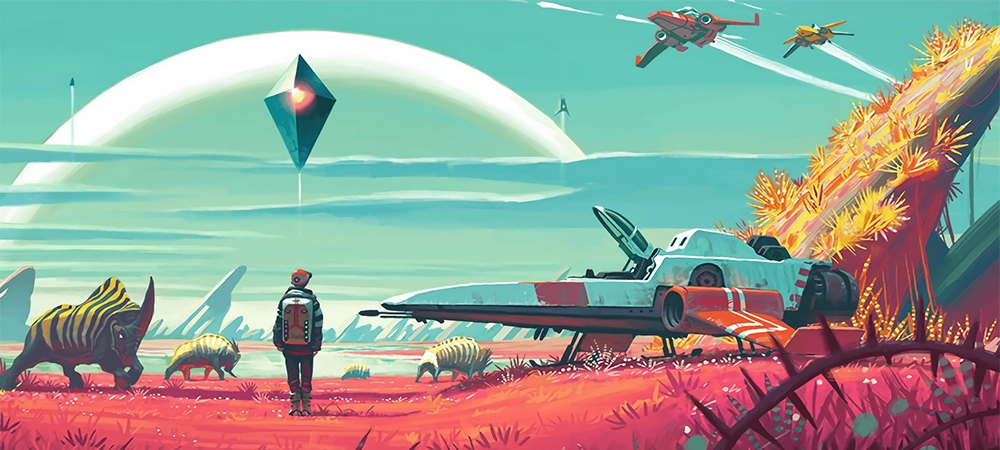The gaming world has changed dramatically over the years, evolving from simple 8-bit journeys into sprawling, immersive universes. At the heart of this evolution lies artificial intelligence (AI), which is revolutionizing how games are made, played, and enjoyed. In this blog, we’ll delve into the myriad ways that AI is reshaping game development and what this could mean for gamers going forward.
The Evolution of AI in Gaming
AI has been an integral part of video games since they first appeared. Early titles featured basic algorithms that simulated intelligent behavior, such as enemy movement or simple decision-making. As technology progressed, so did AI’s complexity, allowing developers to craft increasingly realistic and captivating gaming experiences.
1. Elevating Non-Player Characters (NPCs)
One of AI’s most profound impacts in gaming is how it enhances NPC behavior. Gone are the days of static characters with predictable movements. Today, AI enables NPCs to behave dynamically, adjusting their actions based on player interactions.
Example: The Last of Us Part II
In this acclaimed game, NPCs leverage sophisticated AI to navigate their environments and engage with players in more authentic ways. They strategize and respond based on the player’s choices, creating a more immersive gameplay experience.
2. Procedural Content Generation
Building vast game worlds is traditionally a resource-intensive process. However, AI-driven procedural content generation allows developers to automatically create landscapes, quests, and items. This technology not only accelerates development but also offers players unique experiences with each session.
Example: No Man’s Sky
This game utilizes procedural generation to craft a nearly limitless universe filled with diverse planets and ecosystems. Players are encouraged to explore, with fresh discoveries awaiting them every time they play.

3. Personalized Gaming Experiences
AI personalizes gaming by analyzing player behavior and preferences. Utilizing machine learning, developers can tailor difficulty levels, adjust storylines, and customize content, ensuring that each player’s journey feels unique.
Example: Assassin’s Creed Series
In this series, AI adapts challenges based on player performance. This ensures new players are not overwhelmed while providing veterans with engaging challenges.
4. Dynamic Storytelling
Storytelling is a pillar of gaming, and AI is transforming narrative development. With technologies like natural language processing (NLP), AI can create storylines that branch and evolve based on player choices, enhancing engagement.
Example: AI Dungeon
This interactive text-based adventure uses AI to produce rich narratives that adapt to players’ decisions. Players embark on unique adventures that naturally evolve, showcasing AI’s potential for dynamic storytelling.
5. Enhanced Graphics and Animation
AI is also pushing the boundaries of visuals in gaming. Techniques like deep learning help improve facial animations, texture quality, and character movements, making virtual spaces more lifelike.
Example: Unreal Engine’s MetaHuman Creator
This tool empowers developers to build stunningly realistic human characters swiftly. It streamlines character design, making high-quality graphics more accessible than ever.

6. Automating Quality Assurance
Traditionally, game testing has required extensive human resources to spot bugs and issues. AI can automate portions of this process, quickly identifying problems and allowing developers to focus on creativity rather than repetitive testing.
Example: GameAnalytics
Tools like GameAnalytics harness AI to analyze gameplay data, flagging potential bugs or balance issues. This streamlines the refinement process, leading to smoother game launches and a better experience for players.
7. Addressing Ethical Challenges
While AI offers many advantages, it also presents ethical dilemmas, such as player privacy and data security concerns. Developers must approach these issues responsibly to ensure that AI enriches the gaming experience without compromising player trust.
Conclusion: The Future of AI in Gaming
As technology continues to advance, AI’s role in game development will only grow. From crafting incredibly lifelike worlds to delivering personalized experiences, AI is set to significantly influence the future of gaming. As developers harness its potential, players can look forward to richer, more dynamic experiences than ever before.
Whether you’re a developer, a gamer, or a tech enthusiast, it’s an exhilarating time to witness the ongoing transformation of the gaming landscape. AI is more than a tool; it’s a driving force reshaping how stories are told and how we engage with games.
Stay tuned—exciting new gaming experiences, powered by the incredible capabilities of artificial intelligence, are just on the horizon!












Amazing, great 👍
Usually I do not read article on blogs however I would like to say that this writeup very compelled me to take a look at and do so Your writing taste has been amazed me Thanks quite nice post
Attractive section of content I just stumbled upon your blog and in accession capital to assert that I get actually enjoyed account your blog posts Anyway I will be subscribing to your augment and even I achievement you access consistently fast
Normalmente eu não leio artigos em blogs, mas gostaria de dizer que este artigo me obrigou muito a dar uma olhada e fazê-lo. Seu estilo de escrita me surpreendeu. Obrigado, artigo muito bom